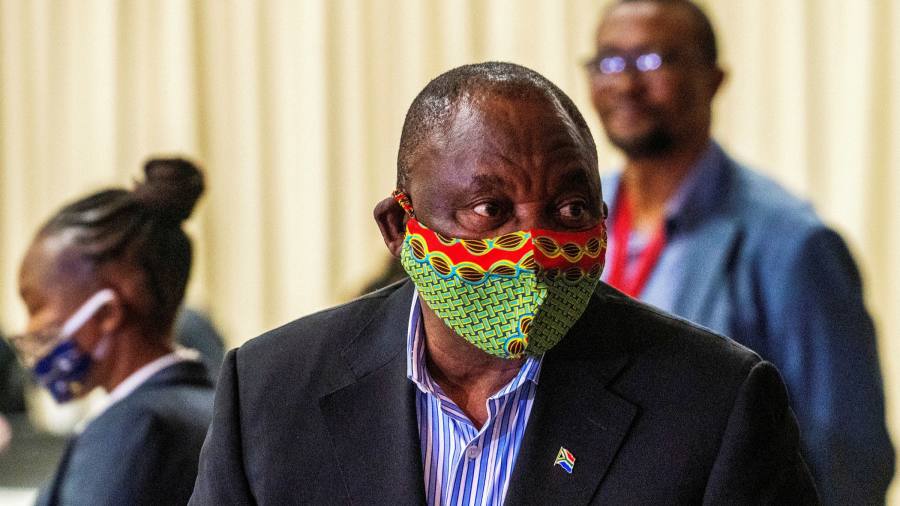[ad_1]
The writer is a political commentator and author of ‘We Have Now Begun Our Descent’
Judging from his presidency and his response to the pandemic, South Africa’s Cyril Ramaphosa is a man who starts well but struggles to finish.
Three years ago, he seemed on the verge of great things. Although he was Nelson Mandela’s preferred successor, he lost an internal party contest in the 1990s and moved into business and made a fortune. In 2017, he returned to politics, won the leadership of the governing African National Congress, fired the scandal-wracked Jacob Zuma and promised a “new dawnâ€. Business confidence soared.
Yet today, Ramaphosa faces a barrage of criticism, political uncertainty — and a mounting public health crisis. His administration is mired in corruption allegations over Covid-19 spending. Friends and foes alike complain he is too cautious about implementing urgently needed reforms, and has lost his grip on the ANC. The economy is wobbly: credit rating agencies have warned about rising levels of public debt, and there are near-daily electricity blackouts. His government’s handling of vaccine procurement and rollout has been chaotic.
It wasn’t like this a year ago. Unlike UK prime minister Boris Johnson, Ramaphosa won plaudits from the World Health Organization for his early pandemic response. He instituted lockdown swiftly and opened up cautiously in December. Throughout, he insisted on the importance of scientific guidance while mobilising business, civil society and the public sector to work with him. Then it all began to unravel.
In December, it became clear that South Africa had neither vaccines nor rollout plans for when it did have them. The “incompetent and overconfident†procurement team had struck no deals outside of the WHO’s Covax initiative. As with many other emerging economies, that meant delayed deliveries. So Ramaphosa and health minister Zweli Mkhize scrambled to negotiate with pharmaceutical companies, acquiring 1.5m doses of the Oxford/AstraZeneca jab. Its rollout, however, has since been suspended after a study appeared to show it gave limited protection against the 501. V2 variant first identified in South Africa.
To be clear, that suspension wasn’t the government’s fault. Instead, it illustrates the best part of its science-led coronavirus response. What does hold water, though, are general concerns about the vaccine rollout plan. If the country sought to vaccinate 40m people this year, as per government plans announced in January, it would need to vaccinate 150,000 per day for six months, and double that for the next six, to cover 67 per cent of the population and reach herd immunity. That was always unrealistic.
With by far the largest reported number of cases on the continent — nearly 1.5m confirmed and almost 47,000 deaths — South Africa is now trying to catch up. Negotiations are under way for the Johnson & Johnson vaccine. Others to be used include the BioNTech/Pfizer vaccine and possibly Russia’s Sputnik V and China’s Sinopharm. Even so, rollout funding is so uncertain that business has reportedly been pressured to pony up.
That illustrates Ramaphosa’s biggest underlying problem: the economy. He has failed to ease business regulations and restructure cash-guzzling state-owned enterprises. To ANC adversaries, Zuma chief among them, this has left him looking weak. Foes now plot against him and, at a party conference later this year, plan to lodge a motion of no confidence — although it is not clear this is legal midway through his term.
Ramaphosa won a reputation for ruthless but effective consensus-making as the ANC’s chief negotiator at democracy and constitutional talks in the 1990s. Those skills are not showing now. With two years left as ANC president, he can still turn things around. But time is running out.
[ad_2]
Source link





